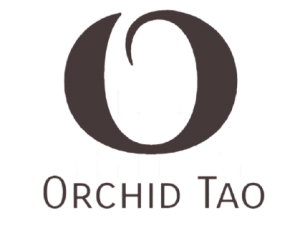- Changes in lifestyle and dietary patterns may be partly to blame for the increasing incidence of colorectal cancer among younger adults.
- Scientists have speculated that declines in average dietary intake of vitamin D since the 1980s may be a factor in this increased incidence.
- A study has found an association between a higher total intake of vitamin D and a lower risk of colorectal cancer in adults under 50 years of age.
- The findings suggest that encouraging people in this age group to increase their vitamin D intake could provide a cheap, low-risk complement to screening for the disease.
Colorectal cancer (cancer of the colon or rectum) is the third most common cancerTrusted Source and the third leading cause of cancer-related deaths in the United States.
While the overall incidence of colorectal cancer has decreased over the past 2 decades, the number of younger adults with the disease has increased.
If current trends continue, researchers estimateTrusted Source that by 2030 almost 11% of colon cancers and 23% of rectal cancers will occur in adults under 50 years of age.
Around halfTrusted Source of the people with early-onset colorectal cancer do not have a family history of the disease or known genetic risk factors, so changing lifestyles and diet patterns may play a role in its increasing incidence.
Researchers have already linked early-onset colorectal cancer to obesityTrusted Source and sedentary lifestylesTrusted Source.
They have also focused on changes in dietTrusted Source as another possible culprit for the rising numbers.
The researchers suggest that reduced consumptionTrusted Source of foods rich in vitamin D, such as dairy products, fish, mushrooms, and eggs, is one of the prime suspects.
Several studies have found that vitamin D protects against colorectal cancer overall, but none have focused on the early-onset form of the disease.
“Dietary changes in recent decades are one of the many potential risk factors that we are studying in relation to young-onset colorectal cancer,” said Kimmie Ng, M.D., M.P.H., who directs the Young-Onset Colorectal Cancer Center at the Dana-Farber Cancer Institute in Boston, MA.
“We know that diet and lifestyle are strongly linked to colorectal cancer overall (no matter what the age of diagnosis), so it makes sense to explore whether some of the risk factors that have changed recently — like vitamin D — may be contributing to the rise of young-onset colorectal cancer,” she told Medical News Today.
Dr. Ng and her colleagues at the Harvard T.H. Chan School of Public Health in Boston, MA, and other institutions analyzed data on the diet, lifestyle, and medical history of 116,429 female nurses aged 25–42 years old. The nurses were participants in the Nurses’ Health Study II (NHS II) that began in 1989.
In this prospective study, participants fill out questionnaires every 2 years about their lifestyle, medical, and other health-related information.
They also answer more detailed questions about their diet in a food frequency questionnaireTrusted Source every 4 years.
The researchers used the data to estimate the volunteers’ total vitamin D intake from their diet and supplements.
Between 1991 and 2015, there were 111 newly diagnosed cases of early-onset colorectal cancer among participants.
After adjusting for other known risks, such as smoking, drinking alcohol, red meat consumption, and sedentary behaviors, they found that total vitamin D intake was significantly associated with a reduced risk of early-onset colorectal cancer.
The protective effect appeared to be greater for vitamin D from dietary sources, particularly dairy products, than from supplements.
The scientists also found an association between low vitamin D intake and precursors of the disease, known as adenomas and polypsTrusted Source.
“Our findings suggest that as little as 300 [international units or IU per day] of vitamin D (approximately 3 glasses of milk per day) may be associated with a 50% decreased risk of young-onset colorectal cancer,” said Dr. Ng.
For comparison, the Institute of Medicine in the U.S. recommends that adults consume 600 IU of vitamin D per day.
The findings appear in the journal Gastroenterology.
The authors conclude that, if confirmed, their findings could lead to recommendations for higher vitamin D intake as an inexpensive, low-risk complement to colorectal cancer screening to prevent the disease in adults under 50.
Reduced consumption of dairy
The research found a particularly strong link between vitamin D intake from dairy sources and reduced risk of colorectal cancer.
Lead author Hanseul Kim, a Ph.D. candidate at Harvard T.H. Chan School of Public Health, told MNT that decreased dairy consumption since the 1980s might partly explain the increasing incidence of young-onset colorectal cancer.
“Although the overlap in time trends could be a coincidence, it is interesting that the increased early-onset colorectal cancer incidence and decreased dairy consumption happen around the same time around the world,” she said.
She said the finding that dietary vitamin D appeared to have a stronger protective effect than vitamin D from supplements could be due to chance.
“Another possible explanation might be that certain nutrients in multivitamins could offset the beneficial effects of vitamin D,” she said.
“There could also be additional factors in diet such as calcium that might work with vitamin D to lower risk,” Dr. Kim added.
But the author also emphasized that they do not fully understand the mechanism underlying the possible differences between dietary and supplemental vitamin D.




